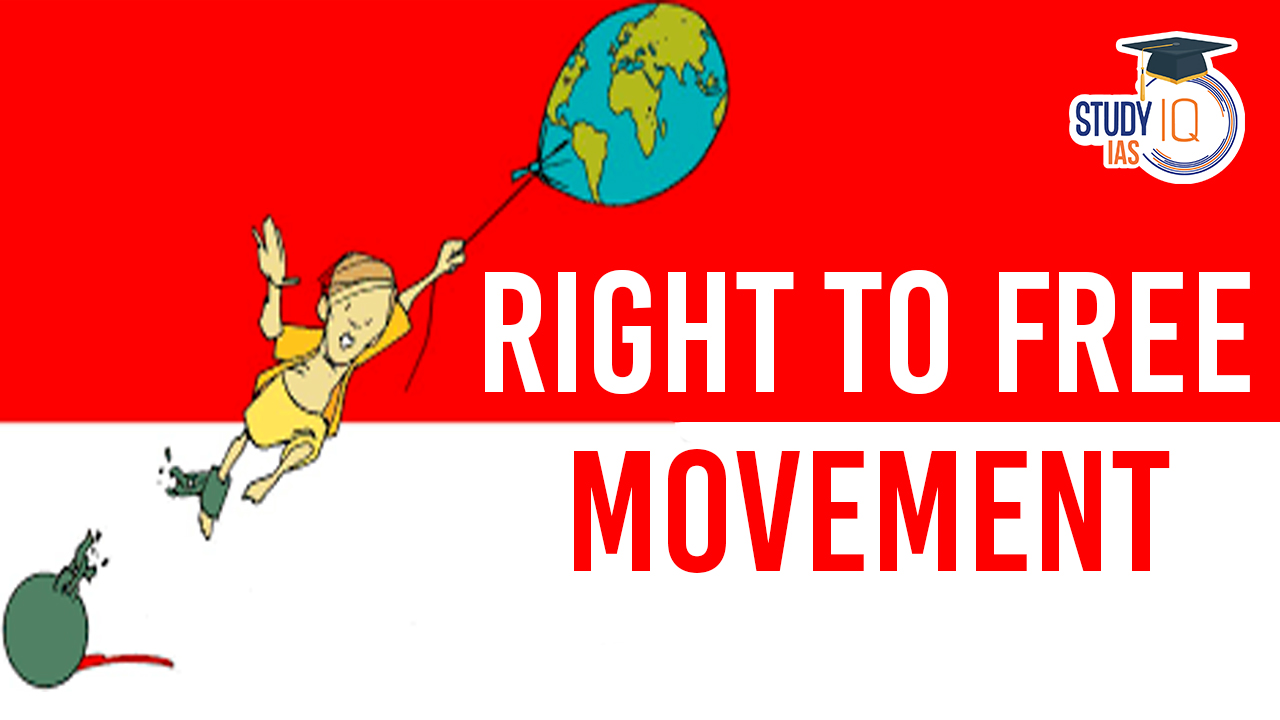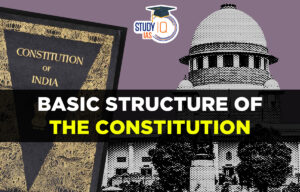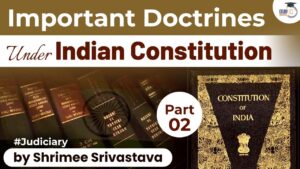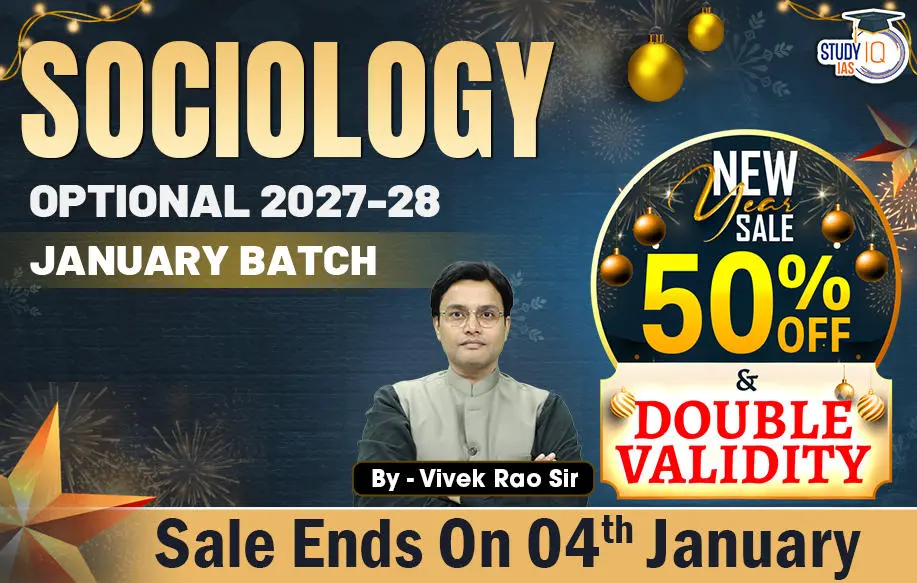Table of Contents
The Indian Constitution provides a robust framework for safeguarding individual freedoms through its Fundamental Rights. Among these, the rights to reside and move freely throughout the country are enshrined in Articles 19(1)(d) and 19(1)(e). These rights are crucial for ensuring citizens can lead a life of their choice, contributing to their personal and professional growth. This article discusses the significance, scope, and judicial interpretations of these rights, alongside the conditions under which they may be restricted.
About Right to Free Movement
Article 19 (1)(d) under Part III of the Indian Constitution deals with the fundamental right to freedom of movement.
- It guarantees the citizens of India the right to move freely throughout the territory of India
- The basic idea behind this freedom is to promote the feelings of oneness and nationalism among the citizens.
Reasonable Restrictions on Right to Free Movement
Article 19 (5), provides two grounds for imposing reasonable restrictions on this freedom, namely, the interests of the general public and the protection of the interests of any scheduled tribe.
| Related Supreme Court Judgement |
|
| Remember This |
| The right to freedom under Article 19 provides for the right to freedom of movement inside the territory of India. Right to move abroad is covered under Article-21 of the Constitution. |
Judicial Interpretations and Cases
- Externment Orders:
- In a recent ruling, the Supreme Court emphasized that externment orders, which prevent individuals from entering certain areas, should only be imposed in exceptional circumstances. The Court highlighted that such orders must be based on substantial grounds and cannot be applied arbitrarily.
- Shaheen Bagh Protests:
- The Supreme Court clarified that while the right to protest is fundamental, it is not absolute. Authorities have the power to regulate the time, place, and manner of protests to ensure they do not disrupt public order.
- Internet Access and Free Speech:
- In the context of internet shutdowns, the Supreme Court recognized the internet as a crucial medium for the exercise of free speech. However, the Court refrained from explicitly declaring it as a fundamental right but acknowledged its integral role in the broader context of Article 19(1).
- Freedom of Press:
- The landmark case of Romesh Thappar v. State of Madras (1950) established that freedom of the press is an essential aspect of freedom of speech and expression, reinforcing its protection under Article 19.
- Right to Information:
- The Union of India v. Assn. For Democratic Reforms (2002) case affirmed that the freedom of speech and expression encompasses not only the right to express and disseminate information but also the right to receive it.
- Right to Silence:
- In Bijoe Emmanuel v. State of Kerala (1986), the Supreme Court upheld the right to silence as an integral part of the freedom of speech and expression, recognizing that the right to refrain from speaking is also protected.
Conclusion
The Fundamental Rights to reside and move freely are vital components of the Indian Constitution, facilitating personal liberty and national unity. While these rights are broadly protected, they are not absolute and may be subject to reasonable restrictions for public interest and security. The judiciary plays a crucial role in interpreting and upholding these rights, ensuring that restrictions are justified and not applied arbitrarily. Understanding these rights and their limitations is essential for both citizens and policymakers to balance individual freedoms with the needs of society.


 Schedules of Indian Constitution, 12 Sch...
Schedules of Indian Constitution, 12 Sch...
 Basic Structure of the Constitution
Basic Structure of the Constitution
 Important Doctrines under Indian Constit...
Important Doctrines under Indian Constit...

























